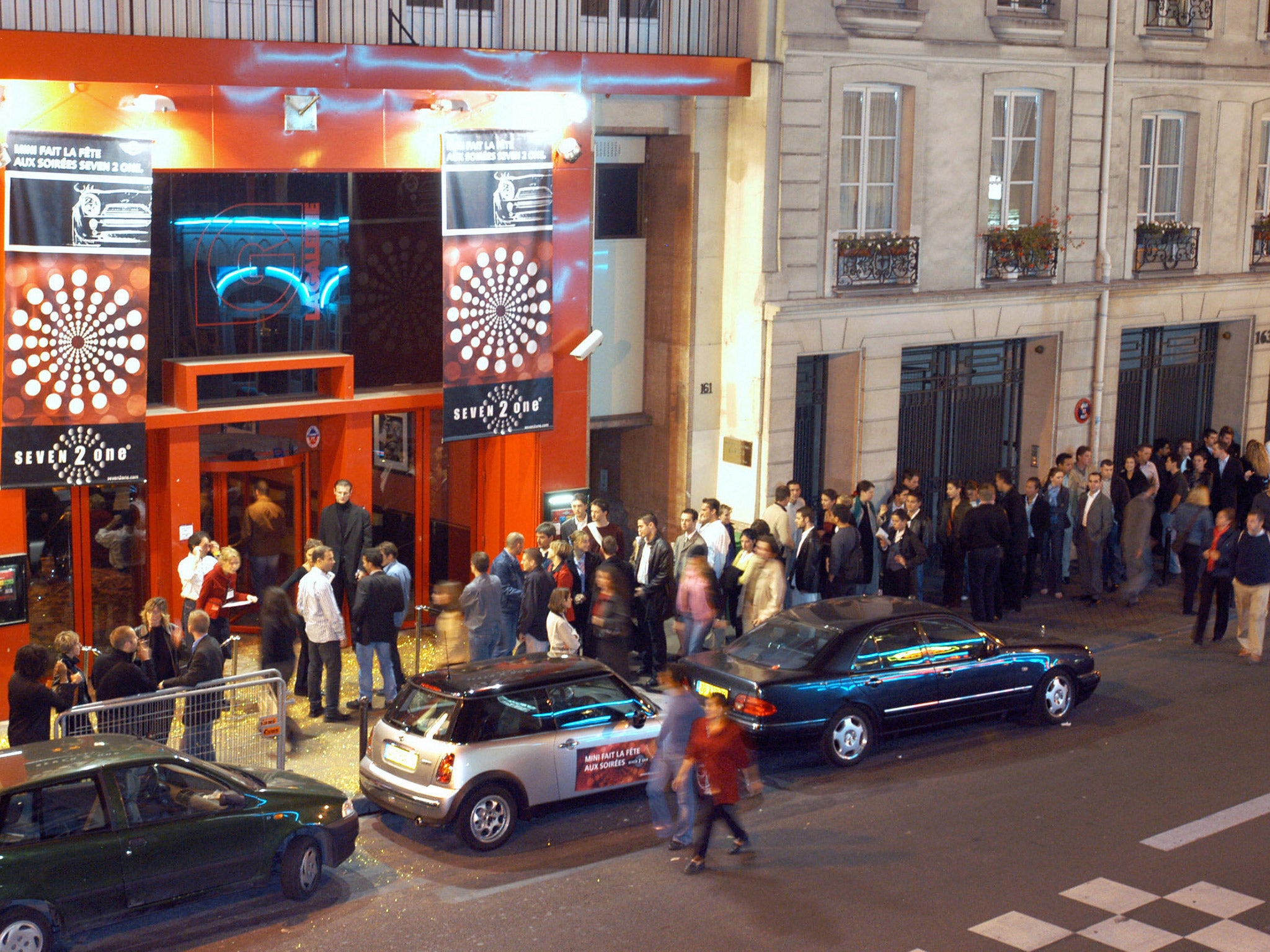Want to avoid the queues? Density's clever infrared device reveals how busy a venue is
The small device attaches to the door of a venue and is the infrared equivalent of a person holding a click counter

Your support helps us to tell the story
From reproductive rights to climate change to Big Tech, The Independent is on the ground when the story is developing. Whether it's investigating the financials of Elon Musk's pro-Trump PAC or producing our latest documentary, 'The A Word', which shines a light on the American women fighting for reproductive rights, we know how important it is to parse out the facts from the messaging.
At such a critical moment in US history, we need reporters on the ground. Your donation allows us to keep sending journalists to speak to both sides of the story.
The Independent is trusted by Americans across the entire political spectrum. And unlike many other quality news outlets, we choose not to lock Americans out of our reporting and analysis with paywalls. We believe quality journalism should be available to everyone, paid for by those who can afford it.
Your support makes all the difference.As we grow older and more grouchy, our desire to get the hell away from large groups of people seems to grow in its intensity. Recently, while planning an evening out with a couple of friends, the suggestion that one of the potential rendezvous points "might be a bit busy" was enough for me to make a unilateral decision not to go there. No way. I yearn for the calming sanctuary of a venue where I can hear myself think, avoid long queues and move about unimpeded. (Basically, as similar as possible to my own home.) But it's hard to avoid hordes of happy, smiling people who are having a great time, because you never know precisely where they are. Technology, however, now offers a potential solution.
The vision presented by a company called Density is so beautiful that it almost makes me weep. It's made a small device which attaches to the door of a venue and is the infrared equivalent of a person holding a click counter. When someone comes in, the tally goes up. When someone leaves, it goes down. The number of people in the venue can then be displayed in some kind of location app or venue directory, giving us a precise idea of how long we might have to wait to be seated, buy a drink, get a new passport, renew our vehicle tax or fetch our item from collection point B. The age-old question of whether somewhere "might be a bit busy" is thus magically answered without the use of CCTV cameras or other invasive tracking technologies.
Weirdly, Density was originally conceived of as a tracking technology that many would deem invasive. The company wanted to help businesses to measure things such as footfall and customer loyalty, and did so using a device that sniffed for the media access control (MAC) address of your wi-fi-enabled phone as it searched for access points. It hashed that data – so it couldn't link the address to you personally – but it could anonymously measure the frequency of visits and assess customer overlap with other stores that used Density.
MAC tracking offered oodles of potential for marketing firms; a couple of years ago, one London company positioned "smart trash cans" around the city to demonstrate how the progress of a device around the streets could be plotted. These kinds of strategies caused a certain amount of disquiet and alarm, but were effectively knocked on the head last summer when Apple revealed that its iOS 8 software randomises those sniffed MAC addresses, thus making collated data sets pretty worthless. There are still ways to track customer behaviour by using cameras, motion detectors and human monitors wandering around in disguise, but they're nowhere near as efficient.
Density went back to the drawing board, and it has relaunched this week as a tool designed to benefit consumers as well as businesses, with the ultimate aim of measuring "the heartbeat of a city". Of course, its success depends on widespread adoption; persuading businesses to install the (free) devices and pay to access the resulting data; forming partnerships with the Yelps and Foursquares of this world; and getting us to start using it.
Of course, it wouldn't just be a boon for antisocial grouches like me who are looking for peace and quiet; it could just as easily guide hedonistic thrill-seekers to venues that are packed to bursting and with queues snaking down the street. Each to their own, eh?
Join our commenting forum
Join thought-provoking conversations, follow other Independent readers and see their replies
Comments